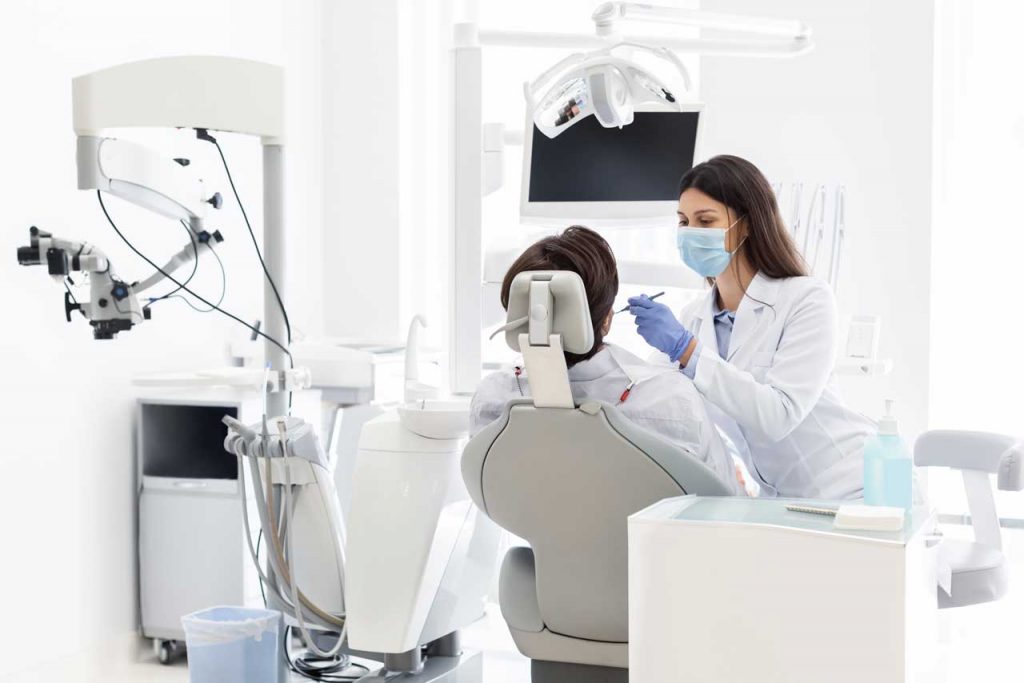
The Wisdom Tooth is basically the third molar that is located at the back of the mouth. There is no need to get it extracted in case it does not cause any problem for you. If the tooth is healthy and has grown properly, there is not any need to get it extracted. However, in some cases, it is s that people are not able to clean the wisdom tooth properly and it is positioned in such a way that biting of food gets tough as it opposed other teeth. Also, sometimes the wisdom tooth does not have enough space to grow, and this can lead to a lot of problems.
Mentioned below are some of the cases when you must get your wisdom tooth removed:
When wisdom teeth emerge, they can grow at different angles in your jaw. Sometimes they even grow horizontally, and it can lead to several issues.
- Wisdom teeth can even stay completely hidden inside the gums of a person. If they are not able to come out normally, it can cause infection. When the wisdom teeth get trapped inside the gum, this condition is called impacted wisdom tooth. In some cases, it is seen that a cyst is formed in that area. This can cause damage to the roots of other teeth or the bone.
- Wisdom tooth also must be removed if they emerge partially. The area where the wisdom tooth appears is a little hard to see as well as clean. Wisdom teeth that come out partially build a passageway where the infection can log in. So, basically, it becomes a magnet for the bacteria thus leading to gum disease as well as an oral infection.
- Another case when a wisdom tooth needs to be removed is when it crowds the teeth that are located nearby. If a wisdom tooth does not have sufficient room to emerge properly, it can lead to crowding and this can spoil the teeth that are present close to it.
Some dentists suggest that it is ideal to remove the wisdom tooth if it has not emerged properly. Then others are of opinion that it is better to remove wisdom teeth when a person is young. This is a better proposition as roots and bone are not fully formed, and so the recovery process is faster post-surgery. This is the reason why some people have their wisdom teeth removed before it starts causing any problem to them.
Many symptoms call for the immediate removal of wisdom teeth. These symptoms are:
- Pain in the wisdom tooth or the surrounding teeth
- Frequent infection of the soft tissue that is located behind the lower last tooth.
- Presence of fluid-filled sacs i.e., cysts near the wisdom tooth
- Presence of tumors
- Any kind of damage to the teeth that are located nearby.
- Gum disease
- A huge amount of tooth decay
There are some cases where wisdom tooth removal should be done without any delay.
- Damage to the jaw– Painful cysts can build around your new teeth. In case they are not treated, there can be severe damage to the nerves. Even the jaw can become hollow.
- Sinus Issues: If there are issues with wisdom teeth it can cause sinus pain, congestion, and pressure.
- Inflammation in the gums: The tissue that is present close to the wisdom tooth can get swollen and then it will be tough to clean the same. So, removing it is the best resort.
- Cavities- Sometimes wisdom tooth causes swelling in the gums. This can build pockets between the teeth where the bacteria can grow, and this will lead to the formation of cavities.

Process of Wisdom Tooth Removal
Before Surgery
When you meet your dentist or oral surgeon before getting a wisdom tooth extraction you must talk about the following:
- Any specific health issues that you have or had.
- List any medications or drugs that you consume regularly.
- Ask any questions or queries that you have as regards the tooth surgery.
- Discuss what kind of anesthesia will be required for the surgery. It is important to either numb the area or sleep during surgery.
- Planning time off from school or work in case you need to have surgery and then take a rest.
During the Surgery
The surgery for a wisdom tooth takes around forty-five minutes or less.
The doctor administers different types of anesthesia so that the patient does not feel any kind of pain or discomfort during the process of removal of the tooth.
- Local Anesthesia: In this, the doctor will use any local anesthetic like lidocaine, mepivacaine, Novocain, etc. to numb the part of the mouth where the surgery must take place. You can also inhale nitrous oxide, or laughing gas, to simply calm yourself or doze during the process of surgery. Once the surgery is finished you will feel alert again.
- IV sedation: In this, the surgeon will numb the mouth and administer drugs via a vein in the arm. This is done to make the patient drowsy. You can go off to sleep during the entire process.
- General Anesthesia: In this, the patient is either given drugs through the vein or he breathes in some gas via a mask. This will put him/ her to sleep during surgery.
The doctor must cut the gums or the bone to take the wisdom tooth out. Then the wound will be stitch so that it heals. These stitches are generally dissolvable and are not to be seen after a few days. Sometimes to stop the bleeding gauze is put inside the mouth.
Author’s Bio:
The author has highlighted the significance of the removal of wisdom tooth. The author has also tried to spread awareness by talking at brief about the symptoms related to wisdom tooth. Wisdom tooth can wreak havoc on your oral health. The above information given by the author would certainly help you to be more aware about the situation.



